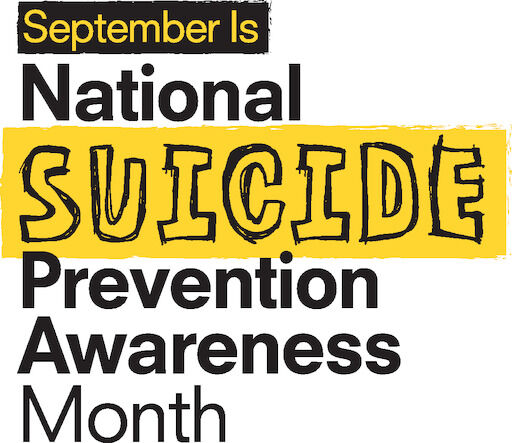
- By Tammie Gercken Staff Writer

#SeptemberisNationalSuicidePreventionMonth, and a local #mentalhealth agency is working hard to make sure people have a place to get help if they have thoughts of #suicide.
Lynne Grey, MA, LPC, LCAS, CCS, #mentalhealth and substance use disorder clinical director at Partners Health Management in Morganton, said she’s concerned about people with #mentalhealthissues putting off treatment due to fears of contracting #COVID-19.
“We are actually seeing a decrease in calls to our crisis lines and a decrease in #behavioralhealth emergency department visits since March,” Grey said. “This decrease certainly does not indicate that #behavioralhealthcrises have decreased during the #pandemic. In fact, opioid overdoses continue to increase since March. We believe that members are not accessing the ED for fear of #COVID. Our #behavioralhealthproviders have also experienced a decrease in clients during this time, which is worrisome. We have been working with our providers to implement innovative telehealth solutions to engage their clients in treatment — an example is the Partners Mobile Connect program, where we distributed 500 cell phones with data plans to our providers to help engage members without access to video technology.”
#JamesDonaldson notes:
Welcome to the “next chapter” of my life… being a voice and an advocate for #mentalhealthawarenessandsuicideprevention, especially pertaining to our younger generation of students and student-athletes.
Getting men to speak up and reach out for help and assistance is one of my passions. Us men need to not suffer in silence or drown our sorrows in alcohol, hang out at bars and strip joints, or get involved with drug use.
Having gone through a recent bout of #depression and #suicidalthoughts myself, I realize now, that I can make a huge difference in the lives of so many by sharing my story, and by sharing various resources I come across as I work in this space. #http://bit.ly/JamesMentalHealthArticle
She said a variety of new challenges brought on by #COVID-19 restrictions may negatively impact people’s #mentalhealth these days, including:
» Loss of recreational activities, such as gyms, social outings and sporting events
» #Isolation from support systems, including church and community groups
» #Financial and/or housing insecurity due to loss of income
» Loss of loved ones due to death from the #virus
» Health insecurity, including concerns that they or their loved ones will get sick
» Increased #anxiety about the rising numbers of #COVID cases and deaths
» Increased #depression due to the negative news cycle and compounding social unrest
» Loss of health insurance due to loss of job, resulting in the inability to access #behavioralhealthcareservices
People should pay closer attention when interacting with friends and family and take note if they seem to be struggling emotionally.
“It can be quite difficult to notice signs of suicidal intentions in loved ones,” Grey said. “Many suicidal individuals feel shame for having these thoughts and will hide them. They may also fear being hospitalized.”
She described what people should look for if they suspect someone they know may be experiencing thoughts of #suicide, including:
» Social withdrawal and #isolation
» Giving away sentimental items
» Decline in appearance and hygiene
» Rapid increase in mood—this could indicate that the individual has made a plan for #suicide, set a date, and is feeling relief
» Increase alcohol and/or drug use
» Engagement in high risk behaviors with a lack of concern for personal safety
» Preoccupation with death
A recent article published in The News Herald noted that approximately 11-15 percent of deaths in North Carolina in 2018 were attributed to #suicide. Grey shared what steps people should take to help suicidal people step back from the edge.
“React calmly and without judgement,” she said. “Develop a plan to ensure the individual is not left alone. Help the individual understand their importance to loved ones. Often the suicidal individual feels they are a burden on others, and it would be better if they were gone.”
People can receive crisis counseling by calling the #nationalsuicidepreventionhotline at 800-273-8255 or the Partners 24/7 crisis line at 888-235-4673.
“If the individual is already engaged with a psychiatrist or other #behavioralhealthprovider, call that after-hours crisis line together,” Grey said. “An involuntary commitment is a last resort, but will keep the individual safe. Partners’ 24-hour call center can dispatch a Mobile Crisis team to help with this process.”
If you are the one experiencing suicidal thoughts, Grey recommended reaching out to loved ones and #behavioralhealthproviders for help. The local emergency department at the hospital can serve as a last resort, if needed.
She said engaging in self-care activities is key to protecting one’s #mentalhealth during the #pandemic.
“Make sure you are eating well, sleeping well and taking any prescribed medication,” Grey said.
“Get out of the house and engage with others.”
Volunteering may be a good way to sideline negative thoughts.
“Research supports that engaging in volunteer activities decreases feelings of #isolation, #hopelessness and #loneliness,” Grey said. “Helping others increases connection and self-worth.”
She said now is the perfect time to take advantage of virtual telehealth.
“Due to #COVID, we have seen an unprecedented expansion in virtual options for #behavioralhealthservices,” Grey said “Psychiatrists and therapists are offering video sessions.”
For more information on #mentalhealthtreatments and #suicideprevention, visit partnersbhm.org.



